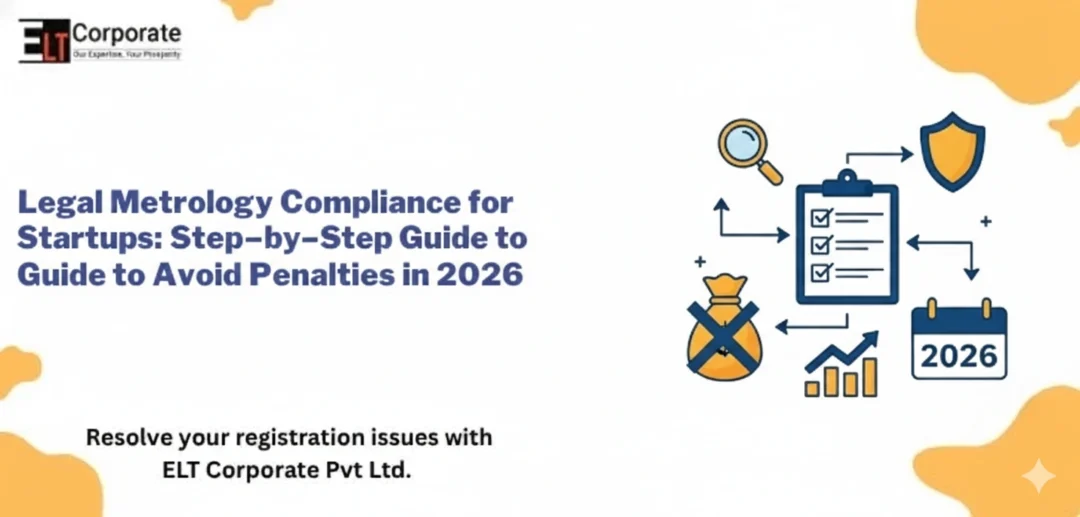Legal Metrology for OEMs and Contract Manufacturers is an important area of compliance in India. OEMs (Original Equipment Manufacturers) and contract manufacturers produce goods that are either branded by other companies or sold in bulk for packaging and resale. Since most of these products are sold in packaged form, they must follow the Legal Metrology Act, 2009 and the Legal Metrology (Packaged Commodities) Rules, 2011.
These rules ensure that consumers get fair weight, correct quantity, and complete product information. For OEMs and contract manufacturers, compliance is not optional – it is a legal necessity to avoid penalties, protect brand reputation, and ensure smooth supply chain operations.
What Is The Role Of Legal Metrology In The Operations Of OEMs And Contract Manufacturers?
The role of Legal Metrology for OEMs and contract manufacturers is to regulate how weights, measures, and packaged commodities are produced, labeled, and sold. It ensures that products manufactured and packed by OEMs or under contract manufacturing comply with standard weights, accurate labeling, and fair trade practices.
- It standardizes packaging and labeling.
- It builds consumer trust by preventing underweight or misdeclared products.
- It ensures OEMs’ products meet Indian legal requirements before being marketed.
- It minimizes disputes in the supply chain (brand owners, wholesalers, and retailers).
Why Must OEMs And Contract Manufacturers Comply With Legal Metrology Rules?
OEMs and contract manufacturers must comply with Legal Metrology Rules because:
- It is a statutory requirement under the Legal Metrology Act, 2009.
- Non-compliance can lead to seizure of goods, fines, and imprisonment.
- It protects end consumers by ensuring correct labeling and fair weight.
- It helps brand owners avoid liability, since responsibility often extends to manufacturers.
What Are The Mandatory Legal Metrology Registrations Needed By OEMs And Contract Manufacturers?
OEMs and contract manufacturers need to obtain specific Legal Metrology registrations depending on the nature of their business:
| S.No. | Registration Type | Purpose | Applicability to OEMs/Contract Manufacturers |
|---|---|---|---|
| 1. | Packaged Commodities Registration | Allows sale/manufacture of pre-packaged goods | Mandatory for all packaging OEMs |
| 2. | Importer Registration | For OEMs importing finished/unfinished goods | Applicable if sourcing from outside India |
| 3. | Manufacturer/Packer Registration | To legally manufacture/pack goods under LM rules | Mandatory for both OEMs and contract manufacturers |
| 4. | Dealers/Repairer Registration (if applicable) | For weighing/measuring instruments | Needed if OEM makes or services such devices |
| 5. | Model Approval | For weights, measures, or related instruments | Required for OEMs making measuring devices |
What Label Declarations Under Legal Metrology Rules Apply To OEMs And Contract-Manufactured Goods?
Label declarations under Legal Metrology rules are mandatory for all packaged products. OEMs and contract manufacturers must ensure these details are printed clearly and accurately:
- Name and address of manufacturer/packer/importer
- Net quantity (weight, volume, length, or number of items)
- Month & year of manufacture/packing/import
- Maximum Retail Price (MRP)
- Customer care details (phone/email for complaints)
- Common or generic name of the product
- Batch/lot number for traceability
How Do Legal Metrology Model Approval Rules Affect OEMs Dealing With Weighing And Measuring Instruments?
Legal Metrology model approval applies to OEMs who manufacture or import weighing and measuring instruments such as weighing machines, fuel dispensers, or water meters.
- OEMs must submit their product model to the Legal Metrology Department for approval.
- The model is tested for accuracy, reliability, and compliance.
- Without model approval, the OEM cannot sell or market the instrument in India.
What Types Of Products Made By OEMs Require Legal Metrology Compliance In India?
Almost all packaged goods manufactured by OEMs require Legal Metrology compliance. This includes:
- Food & beverages (biscuits, snacks, juices, oils)
- Cosmetics & personal care (shampoos, soaps, creams)
- Pharmaceuticals & medical devices (syrups, tablets, packaged devices)
- Industrial products (lubricants, paints, adhesives)
- Consumer goods (toys, electronics, household items)
Additionally, OEMs making weighing/measuring devices also fall under Legal Metrology.
How Can OEMs And Contract Manufacturers Ensure Timely Legal Metrology Compliance For Packaged Goods?
OEMs and contract manufacturers can ensure timely Legal Metrology compliance by:
- Obtaining necessary registrations before starting operations.
- Designing packaging as per LM Rules (MRP, net quantity, manufacturing date, etc.).
- Coordinating with brand owners to align declarations.
- Conducting internal audits to check compliance before market release.
- Updating labels promptly whenever regulations change.
- Hiring Legal Metrology consultants to handle approvals and renewals.
What Are The Penalties For OEMs Or Contract Manufacturers Not Complying With Legal Metrology Norms?
Penalties for non-compliance with Legal Metrology for OEMs and contract manufacturers are strict and can include:
- Fine up to ₹25,000 for first offense on packaged goods.
- Fine up to ₹50,000 or imprisonment up to 6 months for repeat offenses.
- Seizure of non-compliant goods from warehouses or markets.
- Damage to OEM’s reputation and possible blacklisting by brand owners.
Conclusion
Legal Metrology for OEMs and contract manufacturers plays a critical role in ensuring packaged goods and measuring instruments meet Indian standards of accuracy, fairness, and transparency. From mandatory registrations to label declarations and model approvals, compliance is a must for smooth operations.
OEMs and contract manufacturers who stay updated with Legal Metrology norms not only avoid penalties but also build trust with clients and consumers, making them more competitive in the Indian market.
Do OEMs And Contract Manufacturers Need Separate Legal Metrology Registration?
Yes, both OEMs and contract manufacturers must obtain their own Legal Metrology registration if they are involved in manufacturing, packing, or importing regulated products.
Can Outsourcing Labeling To A Contract Manufacturer Transfer Legal Metrology Responsibility?
No, the brand owner remains legally responsible for Legal Metrology compliance, even if labeling or packing is outsourced to a contract manufacturer.








